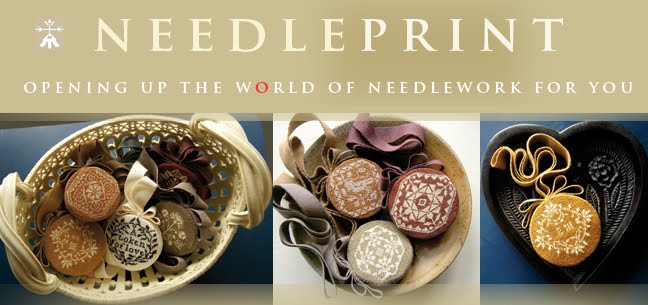A section of the new book describes and gives names to the most commonly found bands on early band samplers - in this way we can speed up descriptions by simply referring to standard names. The word quincunx crops up in a few of these. A gem of a word which means the conjunction of five things and you know this and see this every time you throw a dice or lay a playing card marked with five pips. There ought to be a game devised where the winner rolls a five on the dice, or trumps aces and kings with a five. Then one could shout QUINCUNX with glee, which is how I think the word should be pronounced anyway.
And so it was that Erica told me I should read this book titled Quincunx and I was delighted to do so as Erica always suggests excellent books to read. Erica told me it was a real page-turner - and it most certainly is for every one of its 1200 pages! I would have defied anyone to sustain a story for that length and so it was that I lost the bet on Quincunx. I heartily recommend it. Charles Palliser has imbibed Mayhew and this book is a fabulous rollercoaster of emotions through all strata of London society at a time when to loose one's footing, particularly if you were female, meant certain destitution. I will warn you that it is quite harrowing at times and anyone who thought that single women could sustain themselves simply by their needle without recourse to theft or prostitution has some serious research to attend to.
And thinking of research, to those avid researchers of early needlework who entered last week's draw for the Lady Lever Needlework Booklet a huge thank you for your participation and spirit of fun. The winner this week is Sally from Michigan. Brava, Sally!



No comments:
Post a Comment